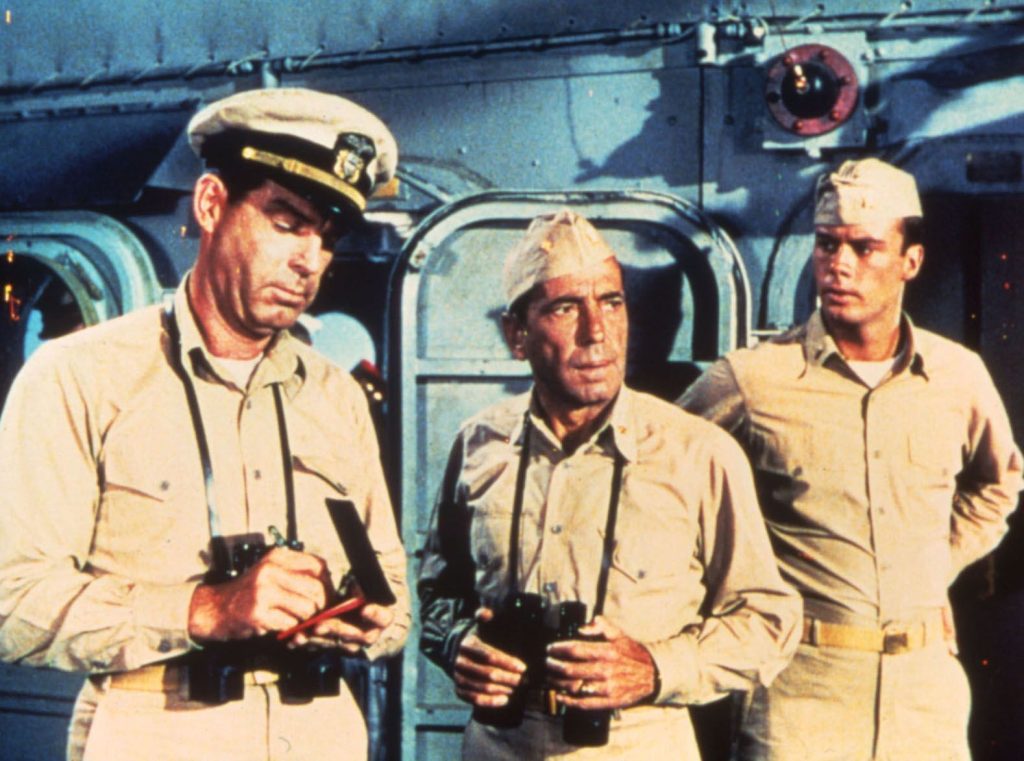In Mr. Warmth: The Don Rickles Project (2007), Robert De Niro declares: “Don Rickles is a good actor.” Such a claim on its face should not raise an eyebrow. After all, Rickles’ comic persona, a self-described style of “exaggeration,” is a genius act in every sense of the word.
But some may be surprised to learn that Rickles first trained as a dramatic actor at the American Academy of Dramatic Arts, with classmates including Anne Bancroft and Jason Robards. Many will know Rickles’ film work best from performances like Mr. Potato Head in the Toy Story franchise (1995- ), or his Dirty Work (1998) cameo as theater owner Mr. Hamilton, where he channels his persona through trademark barbs and sarcasm.
Rickles, who died in April 2017 at 90, also gave several superb dramatic performances alongside Hollywood icons. This is not to demean comedic performances, which are often undervalued. Instead, the aim here is to highlight an overlooked aspect of Rickles’ career. To amend the words of his Casino (1995) co-star: Don Rickles was a good dramatic actor.
Take, for example, his 1958 film debut in Run Silent, Run Deep. Most of the World War II film takes place on a submarine in the Pacific, where Commander P.J. Richardson (Clark Gable) seeks revenge on a Japanese destroyer. The crew, though, is dedicated to Lieutenant Jim Bledsoe (Burt Lancaster), who loses out on the top job to Rich. A central conflict revolves around the allegiances of the crew: Do they believe in Rich’s rigorous, sometimes reckless maneuvers? Or do they want the more level-headed Jim in charge? Due to the hierarchical nature of the Navy, many of their feelings are conveyed only via body language and facial expression.
As Quartermaster 1st Class Ruby, Rickles acts as a visual barometer of the crew’s morale. When they think Jim will captain the sub, Ruby stands in the center of the screen, a wide smile and squinted eyes looking up at Jim with adulation. He lovingly banters with Jim, conveying the excitement of the crew. Later, when Rich offers the first of many risky orders, Ruby wears their shared concern. The film features a handful of such moments when Rickles as Ruby manifests the spirit of the submarine and projects it across the screen. It’s a minor yet crucial role.
One cannot talk about Rickles without mentioning energy. Jerry Seinfeld once described him as “a pure, white light of comedic energy.” In Mr. Warmth, Rickles implies his energy prevented him from becoming a serious actor. Director Philip Loeb once said he needed to stop “beating up the scenery.” But, Rickles remembers in the documentary, Loeb added, “Do me a favor. Never lose that energy. Because that energy is going to make you pretty important.”

Energy helped make Rickles a stand-up star, but his film performances benefit from it too. In his early years, Rickles played variations of a perverted, money-hungry scoundrel. For example, in The Rat Race (1960), starring Tony Curtis and Debbie Reynolds, he plays a dance hall owner and pimp named Nelly. Reynolds plays Peggy Brown, a broke dancer. Nelly tries to convince Peggy to prostitute herself to pay him back. She refuses. In one particularly menacing scene, the bombastic Nelly forces Peggy to strip down to her underwear and hand him each piece of her jewelry and clothing one by one. It’s a horrific, well-acted moment, one in which Rickles wields his energy like a grenade. At any moment, he could go explode.
In the years that followed, Rickles occasionally appeared in feature films, including a solid performance in Roger Corman’s cult classic, X: The Man with the X-Ray Eyes (1963) opposite Ray Milland. Some of his best acting work came when he starred alongside a medley of ’70s icons in Kelly’s Heroes (1970). The satirical, absurdist World War II film features a battalion of men led by Private Kelly (Clint Eastwood), who infiltrate enemy lines in pursuit of Nazi gold.
By 1970, Rickles had released a pair of comedy albums and become a television staple. His role in Kelly’s Heroes as “Crapgame” offers an interesting negotiation of his persona. The subversive film depicts the disenchanted, common soldier’s desire to reclaim the spoils of war. Crapgame has Rickles’ humor, but a vein of pragmatic cynicism also runs through the character. At the film’s end, when a German tank stands in between the men and their spoils, he comes up with the perfect solution: cut the enemy soldiers in on the action. And it works. In the role, Rickles distills the essence of the film.
Rickles’ status as a comedian only grew in the decades that followed, and his feature film work became more infrequent. His final “serious” performance came when he starred alongside De Niro in Martin Scorsese’s Casino as Tangiers manager Billy Sherbert. Scorsese once said Rickles’ presence lended an “authenticity” to the film. When Rickles walks on screen, one literally sees the embodied history of Las Vegas. The performance becomes somewhat jarring in its departure from the Rickles persona; he speaks little and appears serious. More is at play.
Much of Casino concerns the power behind the flash of Las Vegas: surveillance cameras, government corruption, and the mob itself abound. Rickles’ muted performance conveys this duality. Underneath the subdued Sherbert is the caustic Rickles, and the audience is left to wonder whether the grenade will ever go off. It never does, but the controlled threat remains.
All things considered, Billy Sherbert is a minor role. Yet Rickles’ performance leaves us imagining what his career might have been. – if only he had worked more with filmmakers like Scorsese, who knew when and how to direct that special energy for the cinema.



